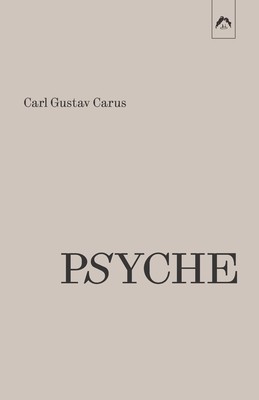
- We will send in 10–14 business days.
- Publisher: Spring Publications
- ISBN-10: 0882140647
- ISBN-13: 9780882140643
- Format: 14 x 21.6 x 0.6 cm, minkšti viršeliai
- Language: English
- SAVE -10% with code: EXTRA
Psyche (e-book) (used book) | bookbook.eu
Reviews
Description
Of all precursors, Carl Gustav Carus (1789-1869) claims the closer attention of psychology because his presentation of the unconscious shows him to be mainly a psychologist ... In distinction to the thought surrounding him and out of which he emerged, Carus describes psychological processes in detail and yet holds to a holistic view, placing the unconscious and the psyche within a meaningful universe whose main focus for him is "life." In the human, life manifests as psyche, the first level of which is the unconscious. He sees man primarily as a psychological being, through whose unconscious he is connected with all life both as nature and as that spiritual principle which inheres in and transcends nature. His position thus stands counter to the Western tradition's long identification of psyche with the conscious mind only and the human being with the spirit. By insisting upon the unconscious level to the psyche and the psyche as the fundament of man, he introduced into the nineteenth-century's warring camps called "science" and "religion" a holistic perspective. Without leaving the actualities of the psyche and its unconscious, he maintains an idealistic vision. We might call his position "psychological idealism." It refuses the traps both of psychology as empirical science and idealism as philosophical metaphysics.-James Hillman
EXTRA 10 % discount with code: EXTRA
The promotion ends in 23d.00:14:02
The discount code is valid when purchasing from 10 €. Discounts do not stack.
- Publisher: Spring Publications
- ISBN-10: 0882140647
- ISBN-13: 9780882140643
- Format: 14 x 21.6 x 0.6 cm, minkšti viršeliai
- Language: English English
Of all precursors, Carl Gustav Carus (1789-1869) claims the closer attention of psychology because his presentation of the unconscious shows him to be mainly a psychologist ... In distinction to the thought surrounding him and out of which he emerged, Carus describes psychological processes in detail and yet holds to a holistic view, placing the unconscious and the psyche within a meaningful universe whose main focus for him is "life." In the human, life manifests as psyche, the first level of which is the unconscious. He sees man primarily as a psychological being, through whose unconscious he is connected with all life both as nature and as that spiritual principle which inheres in and transcends nature. His position thus stands counter to the Western tradition's long identification of psyche with the conscious mind only and the human being with the spirit. By insisting upon the unconscious level to the psyche and the psyche as the fundament of man, he introduced into the nineteenth-century's warring camps called "science" and "religion" a holistic perspective. Without leaving the actualities of the psyche and its unconscious, he maintains an idealistic vision. We might call his position "psychological idealism." It refuses the traps both of psychology as empirical science and idealism as philosophical metaphysics.-James Hillman


Reviews